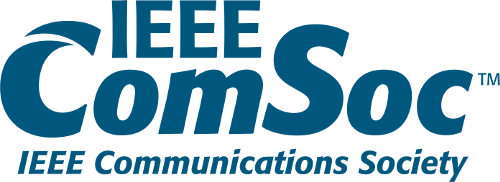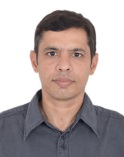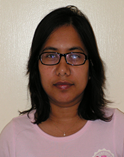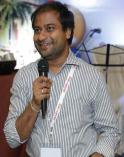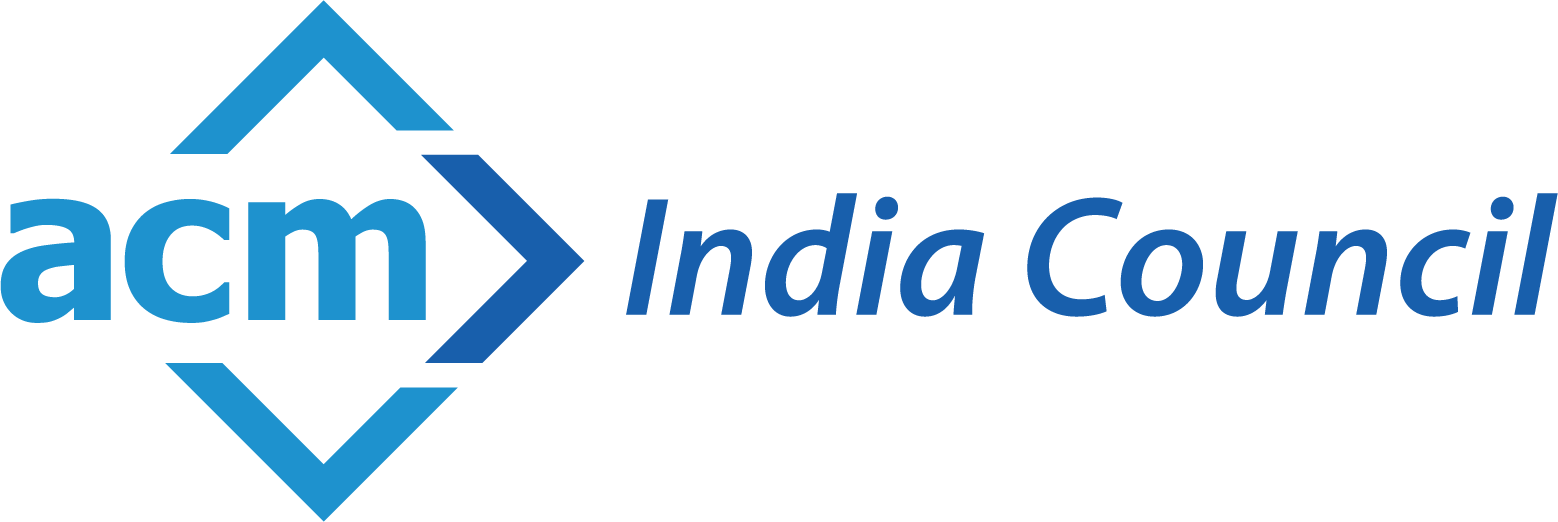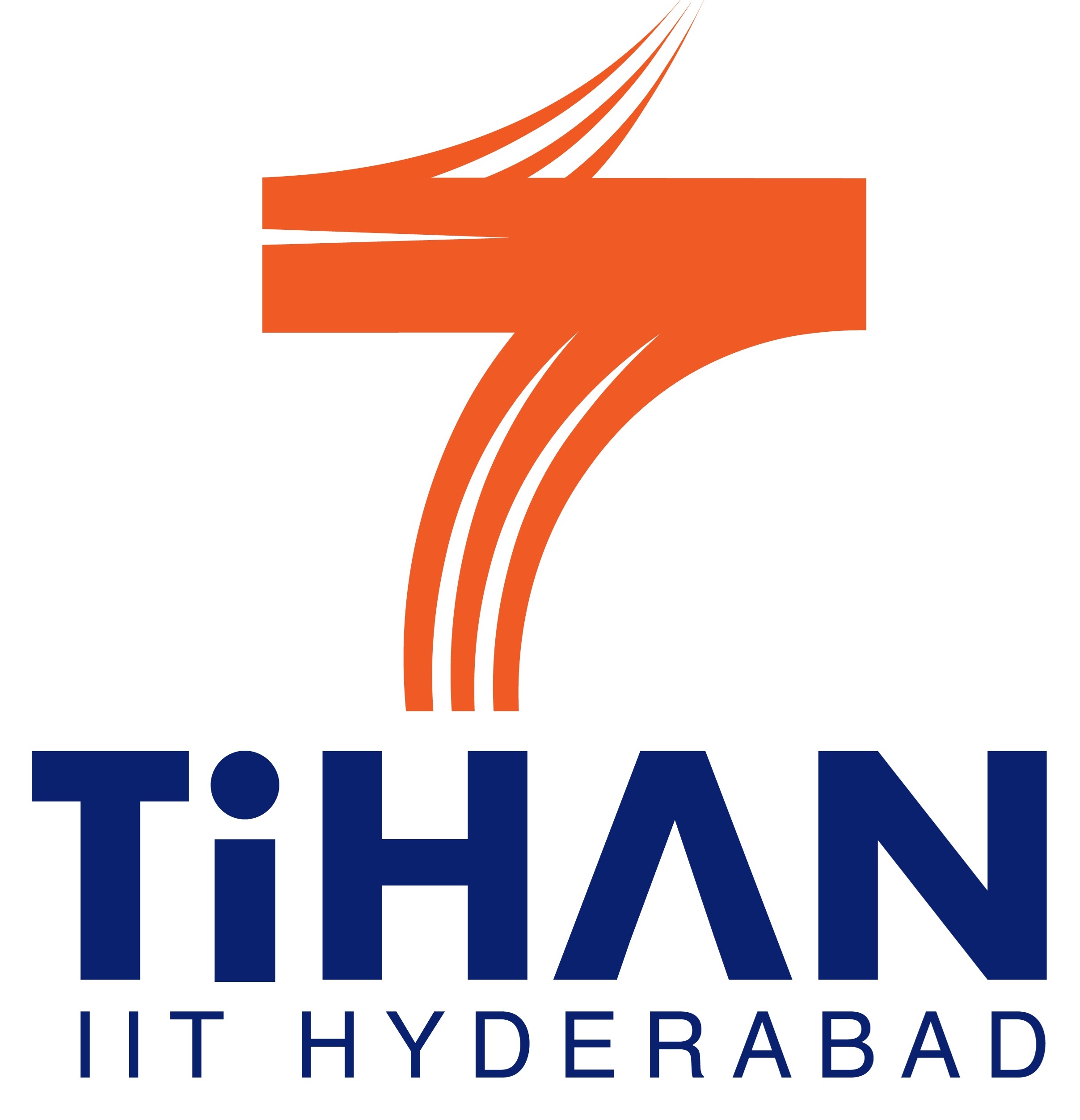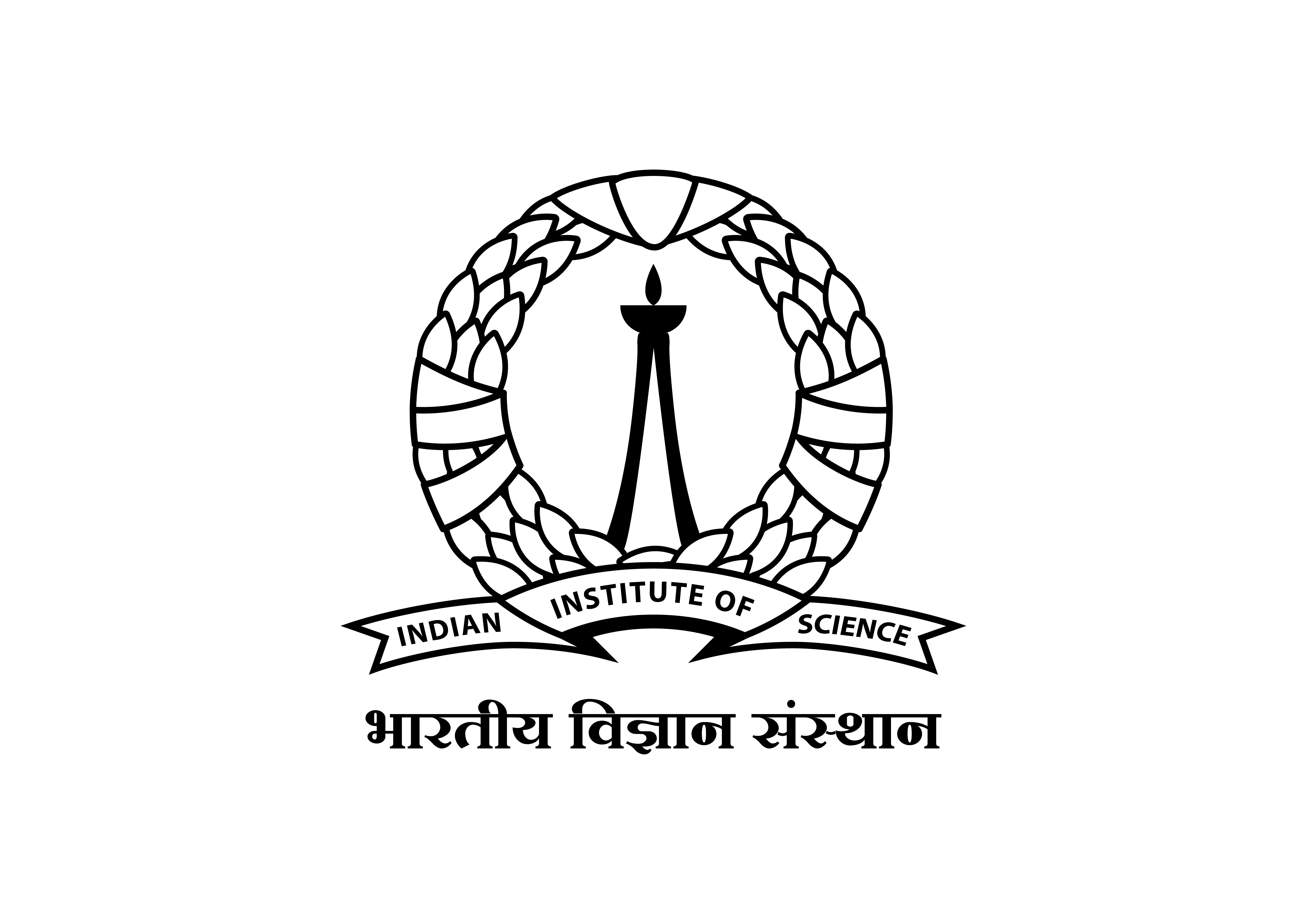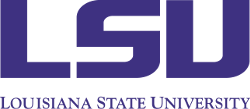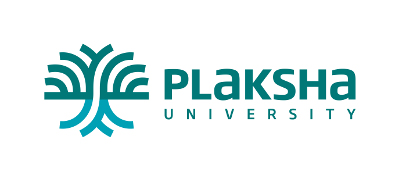Workshop on Machine Intelligence in Networked Data and Systems (MINDS)
Event Date: Wednesday, 3 January 2024
Schedule
| Wednesday, 3 January 2024 | ||
| Venue: SIGMA 3 | ||
| Time | Title | Speaker/Authors |
| 9.30 : 9.45 | Welcome by Workshop Chairs | |
| 9.45 : 10.30 | Keynote 1: Artificial Intelligence Applications in Nuclear Power Plants | Dr. Lalit Singh, NPCIL-BARC |
| 10:30 - 10:45 | Paper 1: Minimizing Intra-Interference in LoRaWAN for Seamless Connectivity in Ubiquitous Networking | |
| 10:45 - 11:00 | Paper 2: LBA: Matching Theory Based Latency-Sensitive Binary Offloading in IoT-Fog Networks | |
| 11:00 - 11:30 | Setup posters / Tea Break | |
| 11:30 - 12:15 | Keynote 2: AI in Edge Computing: Overview and Future Prospects | Dr. Nanjangud C Narendra, Ericsson |
| 12:15 - 12:30 | Invited Speaker from Ola (1) | |
| 12:30 - 12:45 | Paper 3: Real-Time Video PLC using In-painting | |
| 12:45 - 13:00 | Paper 4: Machine Learning-based Time-Series Analysis of Environmental Parameters for Predicting Occupancy Patterns | |
| 13:00 - 14:00 | Lunch Break + Poster Session | |
| An Experimental Comparison and Impact Analysis of various RPL-Based IoT Security Threats Using Contiki Simulator | ||
| Adaptive Energy Optimization for Edge-enabled Autonomous Mobile Robots | ||
| Optimizing Resource Utilization and QoS-Conscious Application Deployment through AHP in Edge Computing | ||
| Towards Precision Withering in Tea Factories with Non-invasive Leaf Moisture Estimation | ||
| 14:00 - 14:45 | Keynote 3: Towards Enabling the Edge Robotics Paradigm | Dr. Amit S Baxi, Intel Labs |
| 14:45 - 15:00 | nvited Speaker from Ola (2) | |
| 15:00 - 15:15 | Paper 5: A Hybrid Sampling methodology based Cost Effective Active Learning for Tabular Data | |
| 15:15 - 15:30 | Paper 6: Advancing Brain Tumor Classification: Exploring Two Deep Learning Architectures for Improved Accuracy | |
| 15.30 - 16.00 | Posters/ Tea Break | |
| 16:00 - 16:45 | Keynote 4: Scaling AI with trust and confidence in the Generative AI era | Gopikrishnan Varadarajulu, IBM |
| 16:45 - 17:15 | Keynote 5 (virtual): The Future Trend in the Intersection of AI/ML and Systems | Dr. Israat Haque, Dalhousie University |
| 17:15 - 17:30 | Paper 7: From Detection to Dissection: Unraveling Bot Characteristics in the VKontakte Social Network | |
| 17:30 - 17:45 | Paper 8: vStream IT: Video Streaming for Resource Constrained IoTs - An Optimal Control Approach | |
| 17:45 - 18:00 | Paper 9: Cost-aware Hierarchical Federated Learning for Smart Healthcare | |
| 18:00 - 18:15 | Closing Remarks + Best Paper Awards announcement | |
Accepted Papers
- An Experimental Comparison and Impact Analysis of various RPL-Based IoT Security Threats Using Contiki Simulator
Darshan Kumar; Nidhi Sinha; Alekha Kumar Mishra; Asis Kumar Tripathy - Adaptive Energy Optimization for Edge-enabled Autonomous Mobile Robots
Vincent Mageshkumar; Amit Baxi; Venkat Natarajan; Girish S Murthy - Minimizing Intra-Interference in LoRaWAN for Seamless Connectivity in Ubiquitous Networking
Rahul Mishra; Sameer Godhaneeya; Aishwarya Soni - vStream IT: Video Streaming for Resource Constrained IoTs - An Optimal Control Approach
Rohit Gupta; Mahendran Veeramani; Venkataramana Badarla - Optimizing Resource Utilization and QoS-Conscious Application Deployment through AHP in Edge Computing
Yasasvitha Koganti; Ram Narayan Yadav; Ajay Pratap - Cost-aware Hierarchical Federated Learning for Smart Healthcare
Himanshu Singh; Moirangthem Biken Singh; Pratik Prakash Kagale; Ajay Pratap - A Hybrid Sampling methodology based Cost Effective Active Learning for Tabular Data
Sharath M Shankaranarayana; Anubhab Samal; Chikka Veera Raghavendra; Vijay Sankar; Arindam Dey; Sangam Kumar Singh - Real-Time Video PLC using In-painting
Rajani Katiyar; Prasenjit Chakraborty; Ravi Surana; Ravishankar Holla; Sanka Sanjana; Sathvik Acharya; Sonia Singh B; Yash Agrawal - From Detection to Dissection: Unraveling Bot Characteristics in the VKontakte Social Network
Maxim Kolomeec; Andrey Chechulin - LBA: Matching Theory Based Latency-Sensitive Binary Offloading in IoT-Fog Networks
Priyanka Soni; Omkar Chand Deshlahre; Sourav Kanti Addya; Anurag Satpathy - Advancing Brain Tumor Classification: Exploring Two Deep Learning Architectures for Improved Accuracy
Vendra Durga Ratna Kumar; Fadzai Ethel Muchina; Priyanka S; Tousif Khan N - Towards Precision Withering in Tea Factories with Non-invasive Leaf Moisture Estimation
Abhishek Kumar; Swagatam Bose Choudhury; Sanket Junagade; Sanat Sarangi; Dineshkumar Singh; Srinivasu Pappula - Machine Learning-based Time-Series Analysis of Environmental Parameters for Predicting Occupancy Patterns
Monika Rajan; Seshan Srirangarajan
Important Dates
| Paper Submission deadline: |
| Notification of Acceptance: 3rd December 2023 |
| Camera-ready Submission: 10th December 2023 |
| Workshop Date:: 3rd January 2024 |
Paper Submission Link: https://edas.info/N31567
As connectivity and storage are getting cheaper, we are seeing more opportunities for data-driven approaches for Networked Data and Systems. The adaptation of machine learning, artificial intelligence, and data analytics techniques in these networked systems is set to transform and disrupt many areas of business and everyday human life. The MINDS (Machine Intelligence in Networked Data and Systems) workshop (co-located with COMSNET 2024) aims to bring together researchers and practitioners to understand and explain this inter-working of machine learning, big data analytics, and networked systems for various application domains.
MINDS welcomes original research submissions that define challenges, report experiences, or discuss progress toward design and solutions that integrate machine learning, artificial intelligence, data analytics, deep learning, mobile systems, and networked systems in various application areas. These application areas include healthcare, environment, retail, transportation, life sciences, e-commerce, cloud services, etc. Contributions describing techniques applied to real-world problems and interdisciplinary research involving novel networking architectures, system designs, IoT systems, big data systems that use techniques from machine learning, artificial intelligence, deep learning, and data analytics as the core component are especially encouraged.
Benefits of Paper submission:
- Chance to present paper to a focused target audience from around the globe
- Global media coverage
The topics of interest include but are not limited to:
Applications
- Design and implementation of intelligent systems for applications such as home automation, self-driving vehicles, driver assistance systems, supply chain, and logistics
- Cloud based machine and deep learning applications in retail and e-commerce
- Machine learning systems for healthcare, weather modelling, life sciences, and environment monitoring
- Machine learning in management of pandemics (e.g. Covid-19, Ebola, SARS)
- Detection of fake news and control of spread of misinformation
Internet of Things (IoT)
- Machine learning driven systems using mobile phones, embedded devices, and sensor networks
- Applications of machine learning in IoT, IIoT, manufacturing, and supply chain optimisation
- Experiences in managing wearable devices, smart-home systems and mobile sensor networks
- Federated Learning and Distributed Learning for distributed computation and decision making
- Learning with Noisy Labels and Adversarial Robustness
Networking
- Root cause analysis and failure prediction using system and network logs
- Applications of machine/deep/reinforcement learning in satellite networks, cellular networks and WiFi networks
- Machine learning driven algorithms and tools for network anomaly detection. Privacy and and network security
- Machine learning and data mining of large-scale network measurements
- Stream-based machine learning for networked data
- Machine learning driven algorithms for network scheduling and control
- Challenges and solutions in IoT data and stream processing at the edge and in the cloud
- High dimensional big data (images, videos) analysis using machine/deep learning
- Scalability, privacy, and security of networked learning architectures
- Distributed privacy-preserving algorithms, privacy attacks, and federated learning
Social Media Networks
- Machine learning driven analysis of text, image, and video data on social media
- Security, privacy, trust analysis, health analytics in social media and digital networks
- Information diffusion modeling and inference, fake news detection, and knowledge transfer in social media and digital networks,
- Anomaly and outlier detection in social networks
- Computational models and agent-based simulations of social networks
- Reinforcement learning, Inverse reinforcement learning, and other learning-based interventions for tackling misinformation spread.
- Learning-based approaches to analyze COVID-related issues on social media.
Submission Guidelines
- MINDS invites submission of original work not previously published, or under review at another conference or journal.
- Submissions (including title, author list, abstract, all figures, tables, and references) must be no greater than 6 pages in length.
- Reviews will be double-blind: authors name and affiliation should not be included in the submission.
- Submissions must follow the formatting guidelines as given on IEEE Website; and those that do not meet the size and formatting requirements will not be reviewed.
- All papers must be in Adobe Portable Document Format (PDF) and submitted through the MINDS Workshop submission site on EDAS.
- All workshop papers will appear in conference proceedings and be submitted to IEEE Xplore as well as other Abstracting and Indexing (A&I) databases.
Keynote Speakers
Amit Baxi
Research Scientist and Manager, leading the Signals, Algorithms & Systems Research Lab, Intel IndiaVisit Homepage
Mobile multi-robot systems will be an integral part of highly automated factories of the future. Mobile robots have limited on-board computing and battery capacity, which limits their ability to leverage computationally heavy AI/ML algorithms for perception, navigation, planning, coordination, and control. With advancements in wireless communications and Edge Computing technologies it is now becoming increasingly feasible for robots to offload their computational workloads to Edge Servers. However, several challenges remain with regards to achieving end-to-end latency, reliability and safety during execution of computing workloads distributed across robots and the Edge system. This talk will present challenges and opportunities in realizing Networked Edge-centric Robotics & Automation systems, in the context of time-sensitive use cases such as robot arm control and autonomous robot navigation over WiFi/5G networks. It will also present a Robot-Network-Edge Co-simulation and Co-design Framework which uses AI/ML techniques to enable robots to adapt to unreliable network and for optimal provisioning of Edge resources. Towards the end, the talk will outline future research directions that are necessary to pave the path towards factory-scale Edge Robotics systems.
Amit is a Research Scientist and Manager, leading the Signals, Algorithms & Systems Lab in Intel Labs, India. Prior to Intel, he worked for about 10 years in the medical device research and development, driving the design of several critical-care medical electronics systems. After joining Intel Labs in 2005, he focused on ultra-low-power sensing systems, flexible wearable electronics platforms, embedded/IoT/wireless sensor networks, signal processing & analytics. His research led to digital/wearable health systems such as, Lifephone+ – a personal wearable health product launched in India and Flexible Bio-patch – a cuffless, continuous Blood Pressure sensing platform. Since last 5 years, he has been driving research in time-critical Edge Robotics and Automation Control Systems, with focus on end-to-end system architecture, co-design and co-optimization. He has filed 30+ patents and has 10+ peer-reviewed publications. He holds a Masters degree in Digital Design and Embedded Systems (Manipal University, India) with Bachelors degree in Biomedical Engineering (Mumbai University).
Gopikrishnan Varadarajulu
Senior Technical Staff Member, Architect watsonx.data, Data & AI at IBMVisit Homepage
Gopi Varadarajulu is a Senior Technical Staff Member & Architect in the IBM Data and AI portfolio. He has an insider view of design & development of various IBM Data & AI technologies such watsonx, Watson Studio, Watson Machine Learning & IBM Cloud Private for Data components. He has held various design & engineering responsibilities for the past 16 years and has 6 patents in the areas of Privacy, Secure Data Analysis, Database management systems and operating systems.
Nanjangud C Narendra
Principal Engineer - Research, EricssonVisit Homepage
This presentation will focus on AI applications in Edge Computing. In particular, it will review the overall state of the art in this area, and it will also present a sample implementation of using AI to solve the key research issue of service placement in Edge Computing. The presentation will also introduce and describe the newly emerging area of Generative AI and how it can be applied in Edge Computing scenarios. The presentation will conclude with a detailed discussion of future research in this area, which would be useful to any researcher who wishes to work in this dynamic and fast-growing research area.
Dr. Nanjangud C Narendra (NCN) is a Principal Engineer in Ericsson Research Bangalore. Prior to joining Ericsson, he worked in Cognizant Technologies, IBM Research, HP India and Motorola India. He has about 30 years R&D experience in the Indian IT industry. His research interests span Software Engineering, Workflow Management, Web Services, Service Oriented Architecture, Cloud Computing and Internet of Things. He has published over 100 papers in international conferences and journals. He has been Program Committee member for several key conferences such as Autonomous Agents and Multi-Agent Systems (AAMAS), International Conference on Service Oriented Computing (ICSOC), IEEE International Cloud Computing Conference; he was also Program Committee for ICSOC (Industry track) in 2012 and ICSOC (Research track) in 2015. He is a member of the Editorial Board of Service Oriented Computing and Applications journal. He is a Senior Member of IEEE and ACM.
Israat Haque (Virtual)
Associate Professor at Dalhousie UniversityVisit Homepage
The symbiotic relationship between AI/ML and system design is pivotal for technological progress. This talk emphasizes the need for cohesive systems that effectively support the execution of emerging AI/ML models, e.g., natural language processing (NLP) and computer vision. Conversely, optimization of system design can be achieved through the application of learning-based decision-making techniques. This presentation showcases a couple of examples highlighting the seamless integration of AI/ML and systems, drawing from our recent advancements in distributed systems for learning-based applications. Then, I will illustrate how we automate the operation of the proposed systems using AI/ML. Specifically, I will present an RL-based policy selection to proficiently distribute ML inference tasks across servers within the data center. I will then present another use case where transformer-based neural networks are deployed for anomaly detection in 5G networks. Finally, the presentation will explore the potential of incorporating explainability techniques and embracing the human-in-the-loop paradigm within the context of complementary design aspects.
Dr. Israat Haque is an Associate Professor in the Faculty of Computer Science at Dalhousie University, where she leads the Programmable and Intelligent Networking (PINet) Lab. She works in the areas of Software-Defined Networking (SDN) and the Internet of Things (IoT) focused on the performance, security, reliability, and sustainability aspects of wired and wireless networked and distributed systems. She is also interested in applying data-driven approaches to solve practical and relevant systems problems. Dr. Haque received her Ph.D. from the Department of Computing Science at the University of Alberta. Subsequently, she held an NSERC post-doctoral position at the Department of Computer Science and Engineering at the University of California, Riverside, before joining Dalhousie University. She served as an Area Editor of IEEE Transactions on Vehicular Technology and is currently an Editor of the Internet of Things Series of IEEE Communications Magazine. She is also an active organizer and TPC member of conferences like IEEE ICNP, IEEE CloudNet, IFIP Networking, IEEE NetSoft, IEEE CNSM, IEEE ICC, and IEEE GLOBECOM. Dr. Haque was recognized as an ACM/IEEE N2Women Rising Star in 2021 for research and leadership contributions. She received the Digital Nova Scotia's Thinking Forward Award 2022 for training the next generation of tech talents.
Lalit Kumar Singh
NPCIL-BARCVisit Homepage
Nuclear fuel is the core material of Nuclear Power Plants (NPPs), which is related to the safe and reliable operation of NPPs. To ensure the quality of fuel composition and prevent possible accidents with nuclear fuel, it is necessary to standardize and systematically manage nuclear fuel. AI technology has been used to manage and process nuclear fuel efficiently, and some simulation experiments have been carried out. The talk will introduce various AI use cases in NPP for predictive analysis, prognostic analysis, reactor safety, reactor performance, digital twin, etc.
Dr. Lalit Kumar Singh received his Ph.D. degree from Indian Institute of Technology (Banaras Hindu University). He is currently a Scientist in NPCIL-BARC, Department of Atomic Energy, Government of India, and has distinction of working on Pressurized Heavy Water Reactors (PHWR) and Light Water Reactors (LWR). He has an illustrious career and succeeded in several critical jobs assigned to him in his illustrious career, though, each of them was challenging. His assignments over the years range from design, development, testing, IV&V, related research and site validation of the safety critical computer based systems of Indian Nuclear Power Plants. He has published several research papers in journals of high impact factor like IEEE Transactions, IEEE Computer, ACM, etc. He has been invited for chief guest, keynote speeches, session chair and talks in many international conferences, short term courses, workshops & faculty development programs from many IITs, IIMs, NITs & other institutes of national importance. So far, he has delivered more than 250 talks. He is recipient of many awards like prestigious IEEE K Shankar award, publication award, group achievement award, etc. He is a reviewer of several SCI indexed journals of high impact factor. He is a Senior Member of IEEE and life member of Indian Nuclear Society. He is founder member and industrial coordinator of the proposed Center of Dependability at IIT(BHU). He is a visiting professor in IIIT Gwalior and BHU. He is in the panel of faculty assessment committee for Department of CSE, IIT Roorkee to assess their research profile and give recommendations. He is member of many selection committees, of BARC, IIITs and government universities. He is a member of editorial board of many reputed journals and guest lead editor of many special issues. He is supervising many PhD students of different IITs, NITs and is PhD thesis examiner of IITs, NITs and other reputed institutes. He is an expert member of Industrial policy formation of IIT Ropar, BoS of many autonomous institutes and member on the advisory board of many institutes/universities. He is advisory member of IEEE Bombay Section. He is adjunct Professor in BHU and IIIT Gwalior. He is a reviewer and project collaborator of Research proposals of Board of Research in Nuclear Sciences (BRNS). He is also faculty of Nuclear Training Centre, Department of Atomic Energy, Government of India. He is interfacing with other countries, like Russia, USA, France, etc. for importing nuclear reactors that are based on new technologies. His research interests are in the area of reliability, safety and security of safety critical computer based systems. So far, he has completed 33 projects of Department of Atomic Energy, Government of India. He holds 520 rank in India in the list of World’s scientists released by AD Scientific Index.
Workshop Co-Chairs
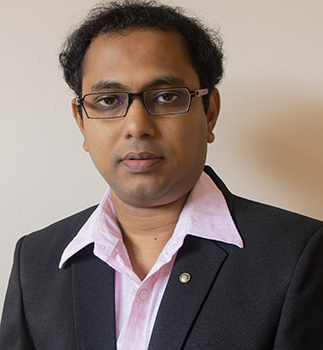
Sourav Kanti Addya
National Institute of Technology
Karnataka, India

Marios Avgeris
Carleton University
Canada
Technical Program Committee
- Dr. John Violos, École de Technologie Supérieure
- Ramy Mohamed, PhD Candidate and Research Assistant at Carleton University
- Dr. Rahul Singh, Indian Institute of Science
- Dr. Dimitrios Dechouniotis, National Technical University of Athens (NTUA)
- Dr. Subhasish Dhal, Indian Institute of Information Technology Guwahati
- Dr. Maria Diamanti, National Technical University of Athens (NTUA)
- Mr. Md Yusuf Uddin, Bangladesh University of Engineering and Technology
- Dr. Prem Singh, IIIT Bangalore
- Grigorios Kakkavas , PhD Candidate, National Technical University of Athens
- Dr. Anurag Satpathy, Missouri University of Science and Technology
- Dr. Rohit Kumar, DTU Delhi
- Dr. Manuj Mukherjee, IIIT Delhi
- Dr. Andrey Chechulin, St. Petersburg Federal Research Center of Russian Academy of Sciences (SPC RAS)
- Mr. Ioannis Dimolitsas, National Technical University of Athens
- Dr. Bishakh Ghosh, Indian Institute of Technology Kharagpur
- Dr. Aroosa Hameed, Carleton University
- Dr. Shubha Nath, Indian Institute of Information Technology Guwahati
- Dr. Dimitrios Spatharakis, National Technical University of Athens(NTUA), Institute of Communication and Computer Systems(ICCS)
- Dr. Konstantinos Tsitseklis, Institute of Communication and Computer Systems (ICCS) & National Technical University of Athens




